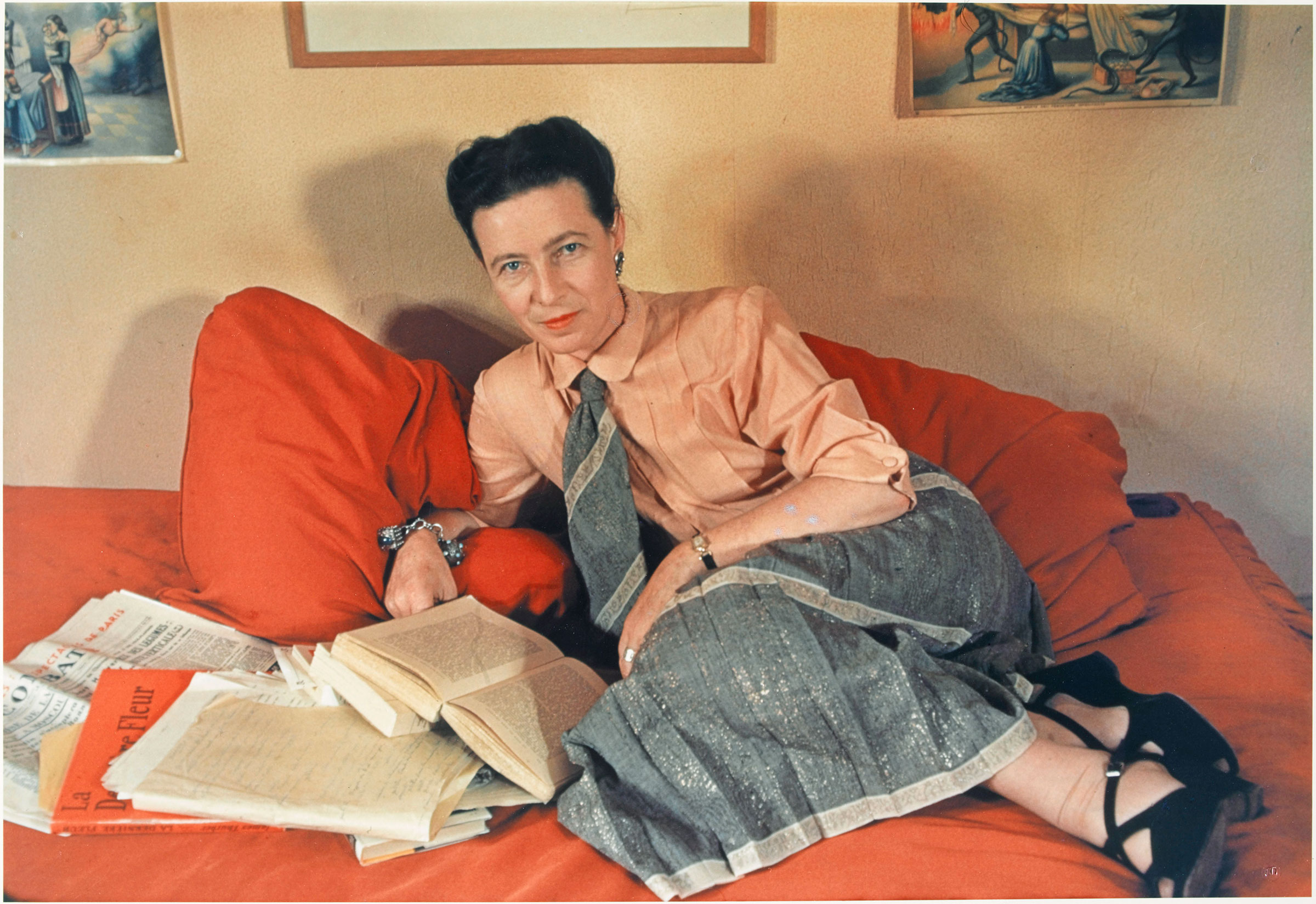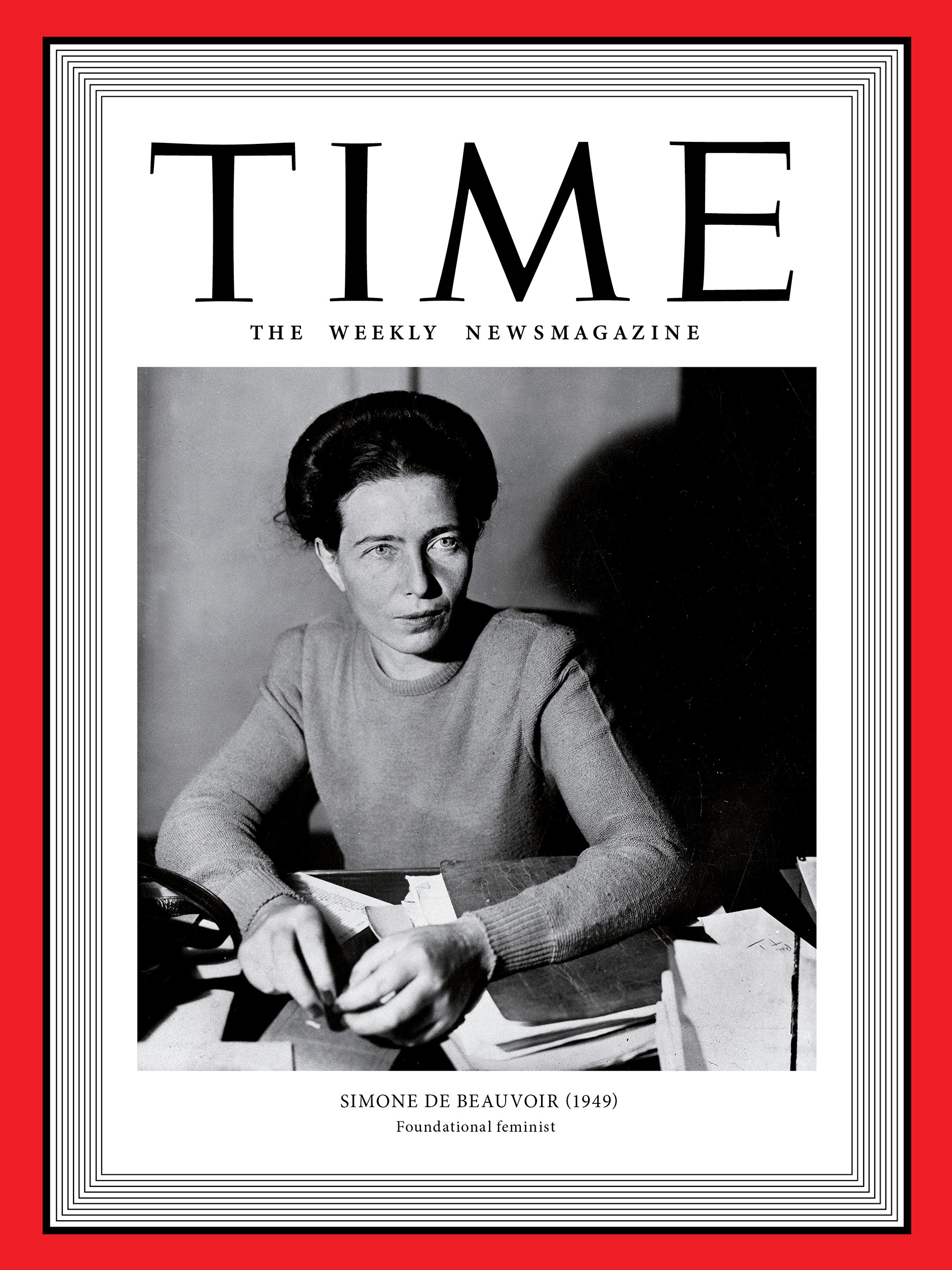Simone de Beauvoir was born in 1908 into an upper-class Catholic family. While studying for the competitive agrégation exam in philosophy, which she passed in 1929, she met Jean-Paul Sartre, the great love of her life. In 1949, she published The Second Sex and revolutionized feminist thought. She won France’s highest literary prize in 1954 for her novel The Mandarins and, in 1971, wrote the text of the Manifesto of the 343, a French petition to legalize abortion.
At 16, I stumbled upon an image of de Beauvoir sitting in Café de Flore in Paris with a stack of books. “She’s a famous author,” my mother told me. I went to the library and borrowed The Second Sex, expecting an erotic book that would answer my burning questions. The first few pages were a disappointment. This wasn’t a book about love or sex, nor a treatise on pleasure. But I kept going.
It was a revelation. De Beauvoir exposed a long-hidden truth: that there is no female nature. She consulted biology, history, mythology, literature, ethnology, medicine and psychoanalysis to question the roles assigned to women. The book told me that I control my destiny. If there is no fixed female essence, then we too are only what we do.
The Second Sex provided me with weapons to understand, to defend, to respond and to persuade. It gave me the desire to write, an exercise in reclaiming the self. De Beauvoir knew: “Freedom is an inexhaustible source of discovery, and every time we give it a chance to develop, we enrich the world.” —Leïla Slimani, translated from French by Gretchen Schmid
Slimani is the author of The Perfect Nanny and Adèle. Her upcoming book is Sex and Lies.

This article is part of 100 Women of the Year, TIME’s list of the most influential women of the past century. Read more about the project, explore the 100 covers and sign up for our Inside TIME newsletter for more.
